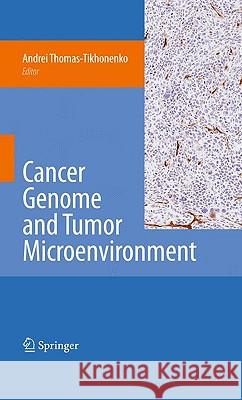Cancer Genome and Tumor Microenvironment » książka
Cancer Genome and Tumor Microenvironment
ISBN-13: 9781441907103 / Angielski / Twarda / 2009 / 480 str.
Cancer Genome and Tumor Microenvironment
ISBN-13: 9781441907103 / Angielski / Twarda / 2009 / 480 str.
(netto: 766,76 VAT: 5%)
Najniższa cena z 30 dni: 771,08
ok. 22 dni roboczych.
Darmowa dostawa!
Oncogenes and tumor suppressor genes had been traditionally studied in the context of cell proliferation, differentiation, senescence, and survival, four relatively cell-autonomous processes. Consequently, in the late '80s-early '90s, neoplastic growth was described largely as an imbalance between net cell accumulation and loss, brought about through mutations in cancer genes. In the last ten years, a more holistic understanding of cancer has slowly emerged, stressing the importance of interactions between neoplastic and various stromal components: extracellular matrix, basement membranes, fibroblasts, endothelial cells of blood and lymphatic vessels, tumor-infiltrating lymphocytes, etc. The commonly held view is that changes in tumor microenvironment are "soft-wired," i.e., epigenetic in nature and often reversible. Yet, there exists a large body of evidence suggesting that well-known mutations in cancer genes profoundly affect tumor milieu. In fact, these non-cell-autonomous changes might be one of the primary reasons such mutations are preserved in late-stage tumors.











